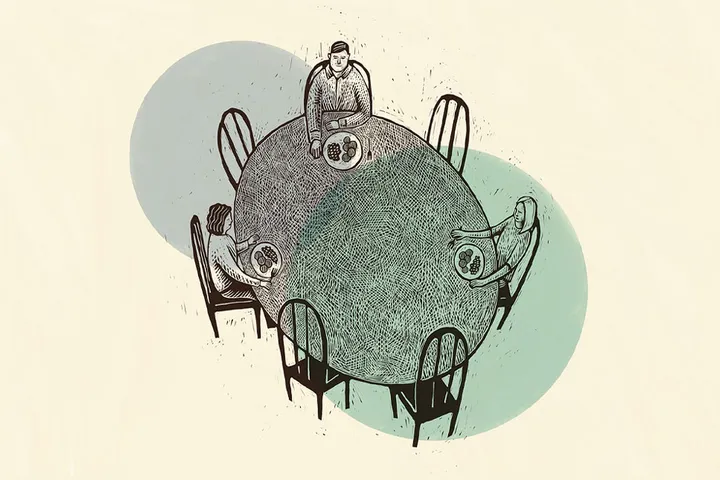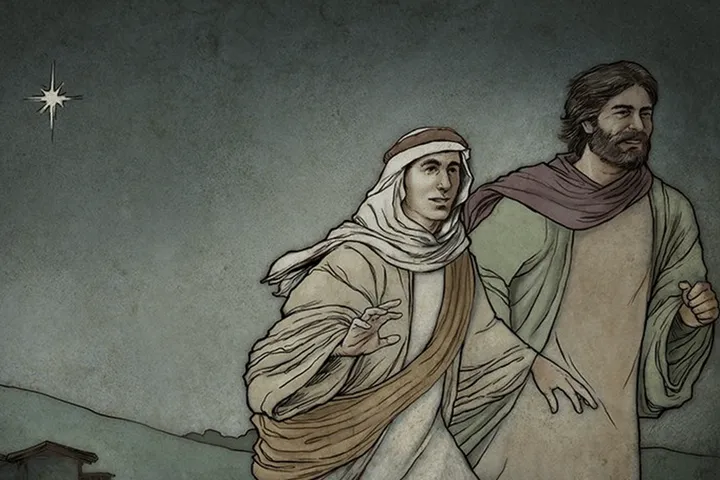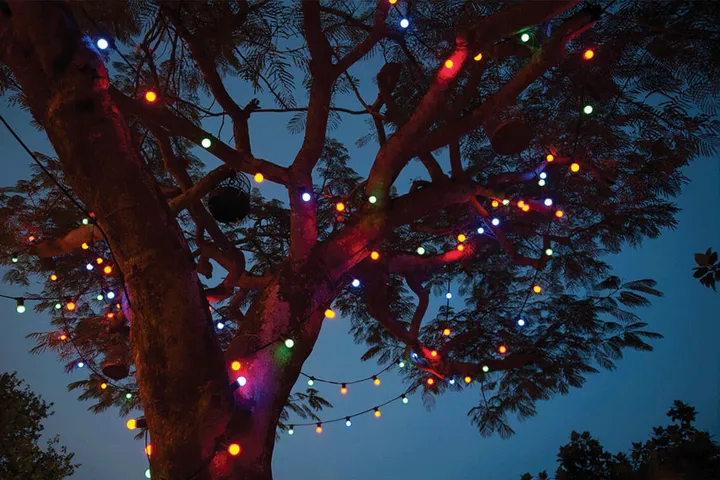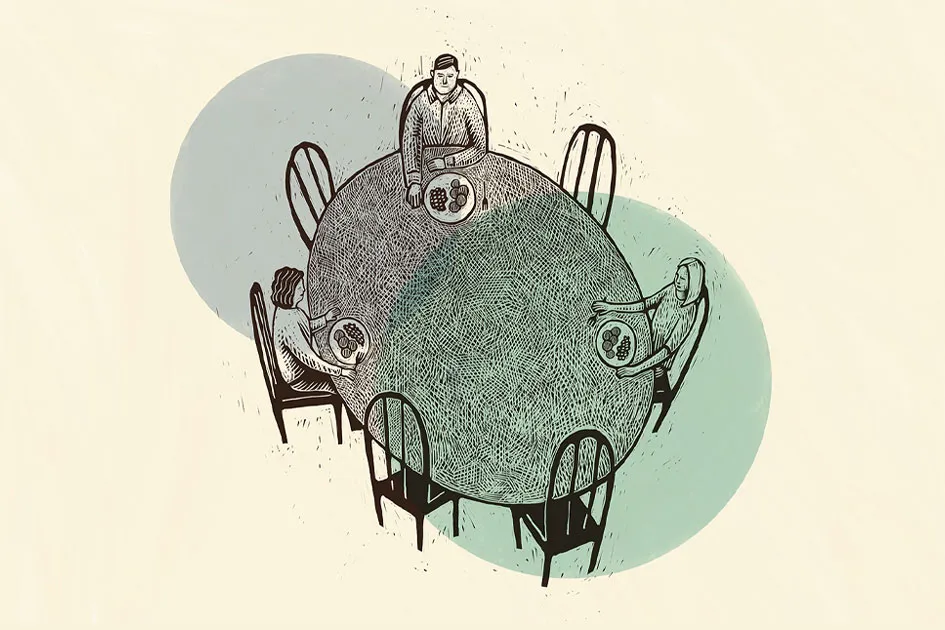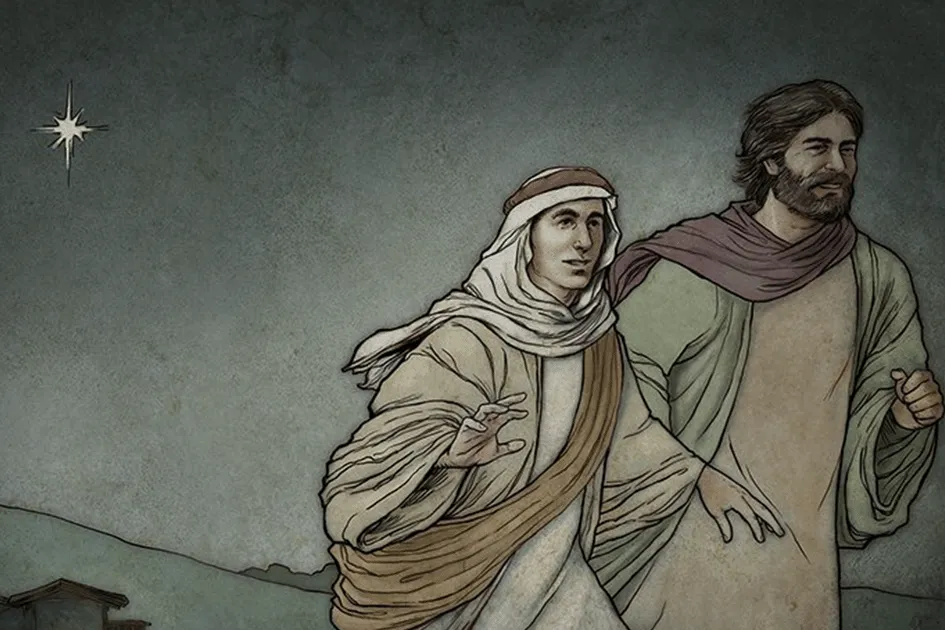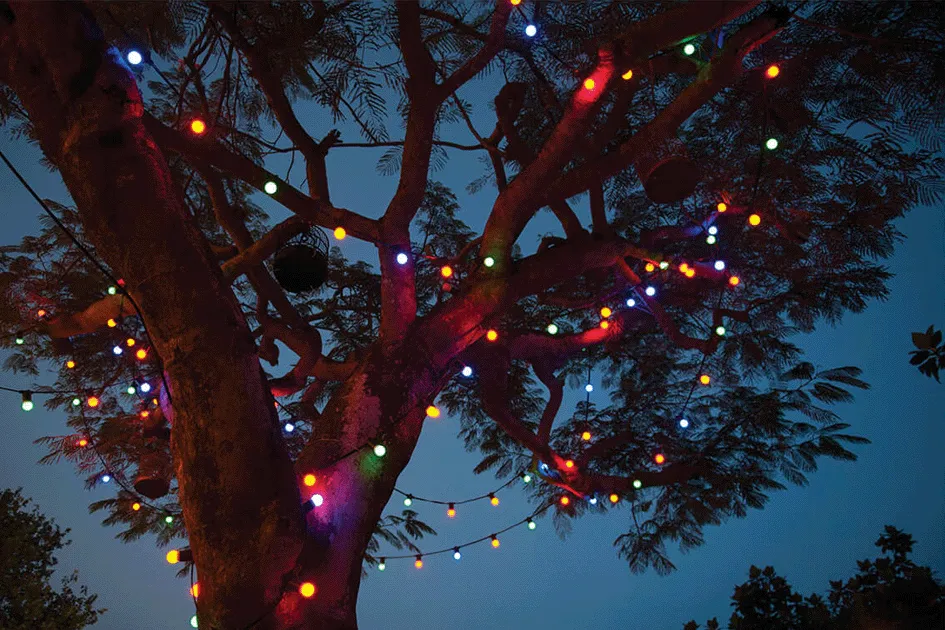One of my earliest memories is of standing with a bread bag at pond’s edge, throwing bits of crust to the ducks. The mallards bobbed under the water, lifted soggy pieces, and nibbled with gratifying little clicks of their beaks.
An early image like this can become a homecoming of sorts. I always look for ducks in ponds and, yes, still try to feed them. As a poet, I’ve also returned to the subject of ducks in my writing many times over the years. It’s been said that poetry is about either love or death—not love, death, and ducks. But the ducks are about nothing less than love and death. I’ve seized this memory and distilled it in words because I love the moment—and will die soon. Relatively speaking.
But what’s the problem with that? As believers, shouldn’t we see death as the good beginning anyway? If we are not of this world, why should we seize these broken days?
Creation is all we have now, and any glimpse of the kingdom of heaven is informed by the images and memories of our bumbling time on earth.
Creation is all we have now, and any glimpse of the kingdom of heaven is informed by the images and memories of our bumbling time on earth. We can cling to eternity only because of these moments of grace, microscopic blips of the blip of human life. “And yet He did not leave Himself without witness,” Acts 14:17 tells us, “in that He did good and gave you rains from heaven and fruitful seasons, satisfying your hearts with food and gladness.”
Clearly, God wants us to love the now. Paul exhorts us to focus on what is pure and lovely (Phil. 4:8). Jesus tells us that “the thief comes only to steal and kill and destroy; I came that they may have life, and have it abundantly” (John 10:10). There’s no escaping it: God gives us breath and wants us to breathe deeply. Ducks in a pond may not emit the blazing emerald glow of the Great Throne described in Revelation, but those iridescent feathers that catch the light? A hint.
I’ve been thinking about life’s “blipness” with increasing urgency these days. Suddenly, I’m middle-aged. Movies that came out “yesterday” are now older than some of my kids’ teachers. Time seems to tumble beyond my control. And Ted Kooser’s poem, “110th Birthday: Helen Stetter,” has made it all beautifully worse:
Born into an age of horse-drawn wagons
that knocked and rocked over rutted mud
in the hot wake of straw, manure and flies,
today she glides to her birthday party
in a chair with sparkling carriage wheels,
along a lane of smooth gray carpeting
that doesn’t jar one petal of the pink corsage
pinned to her breast. Her hair is white
and light as milkweed down, and her chin
thrusts forward into the steady breezes
out of next year, and the next and next.
Her eyelids, thin as old lace curtains,
are drawn over dreams, and her fingers
move only a little, touching what happens
next, no more than a breath away. Her feet,
in fuchsia bedroom slippers, ride inches above
the world’s hard surface, up where she belongs,
safe from the news, and now and then, as if
with secret pleasure, she bunches her toes
the way a girl would, barefoot in sand
along the Niobrara, just a century ago.
The precise imagery in this poem is masterful, from hair as “white and light as milkweed down” to “eyelids, thin as old lace curtains.” At 110, Helen lives in the moment so intensely that “her fingers/move only a little, touching what happens/next, no more than a breath away.” But the last phrase, “just a century ago,” knocks me out. Helen’s life has sped by, the memory of her toes in the sand along a Nebraska river as present as her fuchsia slippers. This “secret pleasure” from girlhood has sustained her to her last days, whose arrival “just a century” later may very well surprise her even now.
Likewise, my small memories, these blips on the blip of my life, have given me the hope of God’s deeply personal love and grace. During rough moments in doctors’ offices, classrooms, or mechanics’ garages, I’ve remembered not just the smacking beaks of ducks, but snowfall on a walk with my husband, a homemade card from my child, a bunch of lilacs brought to my door. These pleasures that come from the abundant life are just a preview, gifts from the deposit of the Holy Spirit who guarantees the mystery to come.
When we scorn the blip, ignore it, or ridicule it, we forsake these glimpses of heaven. “I’ll fly away,” we like to sing. But how can we dream of flight without first rooting our toes in the sand?
Ted Kooser, “110th Birthday” from Splitting an Order. Copyright © 2014 by Ted Kooser. Reprinted with the permission of The Permissions Company, Inc. on behalf of Copper Canyon Press, www.coppercanyonpress.org.
